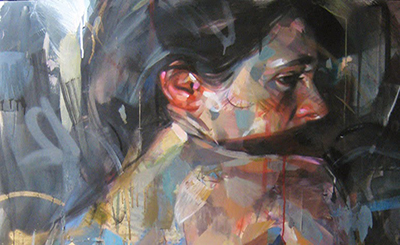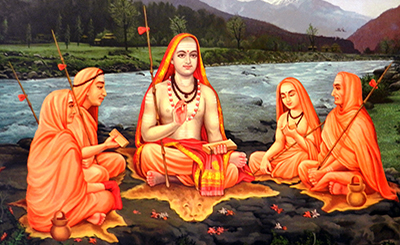Why did a pay cheque cost so much? Why could they never live and work in the same city?
It was the usual rush hour at Gariahat Junction in Kolkata. Only, Katha did not feel rushed to go home.
The taxi always got stuck at the same damn place every day — flanked between the two biggest saree shops of Gariahat, Trader’s Assembly on the left and Adi Dhakeshwari Bastralaya on the right. If only the taxi-driver had speeded up a bit, he could have avoided the signal. As it was, he missed it by just a few seconds. His concentration had left him. With his mind half on the squeaky FM that blared the recent Devdas hit, ‘Dola Re, Dola Re’ at an abnormal pitch, and his eyes fluttering every few seconds to the rear-view mirror where Katha’s face was in profile, he was not in his element. Otherwise, he would have got out and knocked the auto-rickshaw wallah black and blue for having rammed into his vehicle — leaving a clear dent on the left-door of the front-seat — and not just barked the predictable galis while remaining in his seat.
Katha normally hated this routine wait — especially when she was caught in a signal for a second’s slip. She did not mind it so much, though, when there was a breeze blowing (even a gentle one would do) or when it rained — be it the intermittent showers of summer or the monotonous downpour of the monsoons. At such times, Katha would lean her head out of the window and let the raindrops fall sharp and hard or gentle and soft on her sweaty cheeks. She loved the fresh, tingling sensation it left on her skin and the coolness that descended on her after the droplets evaporated.
But this was a scorching July day with the temperature at 37OC. Her blouse was drenched in sweat, her clothes were sticking to her skin like glue, and however much she wiped her face with the aanchal of her sari (her hanky being unusable after the first two hours in college), she was unable to wipe it dry. She was, therefore, irritated beyond measure when the taxi could not clear the signal, gave a sudden jolt, and then stood stock-still. Her jute bag had fallen open — the contents spilling everywhere — and the driver kept on mumbling ‘Sorry didi, Sorry didi…’ while she picked them up one by one. Switching off the FM, he was about to say something else, but a pissed-off Katha seemed to ignore his presence completely, quietly settled back in her seat, heaved a sigh and looked out the window.
*****
Two college students were chatting at the more, waiting for a bus. Earlier, while Katha waited for a cab, they’d been bargaining with one of the pavement hawkers about a handbag. It was evident they were not keen on buying — just enjoying the experience of bargaining in Gariahat, quoting the lowest possible price (probably one-third) against the hawker’s first quote. Such bargaining contests could go on for close to half-an-hour if both the parties involved were equally energetic and equally desperate to buy or sell. A successful transaction was usually one where the contestants met half-way, with the hawker invariably assuring his customer that he wouldn’t have done it for anyone else.
Katha had once bought a trinket — her favourite — from the hawker opposite… six years back, she calculated. How she loved shopping in Gariahat with friends. She now kept all the junk jewellery of her maiden years in a carved wooden box that she had bought in Kalimpong, during her honeymoon. Three carefree college years locked up in a small box! Her closest friend was invariably with her on those shopping sprees. They just loved window-shopping — the two of them — loved hopping from one pavement hawker to another, enjoying the colour and magic of their varied displays.
Suddenly, she missed her friends: her three closest ones in particular — Shayonti, Pratyushaand Gitanjali. Missed going unannounced to their houses on her way back from college or university, missed eating delicious junk with them from roadside stalls, missed seeing films together, missed simply chatting and giggling, or walking down a road thoughtfully, holding hands. All of them had left her. The last four years had been a series of farewells as, one by one, her friends left to discover new lives abroad. It was remarkable that all of them should pursue studies abroad — leaving Kolkata in a neat fashion, one every year, as if their farewells had been orchestrated long ago. Shayonti was pursuing a doctorate at Leeds; Pratyusha at Florida; while Gitanjali, her closest, was globe-trotting with her husband and two-year-old son, having settled for the year in Wisconsin.
Now they usually met once a year — though in different combinations, never together. And even that did not seem to happen anymore. Katha no longer looked forward to their annual reunions these days. For her friends’ vacations invariably coincided with the busiest time of the academic year for her; and increasingly, it was becoming an uphill task to meet even once between their hectic socialising and her endless assignments. They no longer had the time to spend long, lazy afternoons in each other’s homes or have a day out — they could just about snatch an hour or two in a restaurant. A far cry from their heydays….
The big multiplexes and malls — which were all the rage now — had not existed then. Nor did they need five-hundred bucks to hang out. Having fun was a relatively cheap affair in the 1990s and it meant going to different places for doing different things, not the boring everything-under-one-roof experience of a McD world. Every place had a distinct appeal, a different role to play in the game of fun. And it came out most fully in the farewell meetings that Katha had with her friends. For it meant re-visiting all the sites of their friendship — chatting in Presidency’s canteen, buying and gifting books to each other in College Street, eating junk food at Esplanade after watching a film at New Empire or Globe, and shopping in Gariahat. The last was their only concession to South Calcutta, as they all lived and studied in the north and could afford all their fun in the central part of the city.
In time, even those farewells became less special — by the time Katha went for a third valedictory meeting in three years, the ritual had lost some of its charm, leaving her sadder and lonelier than the last two. Only one thing remained the same — their promises to each other, that come what may, the bond of their friendship would last forever; and their confidence that nobody else would, could, ever take the other’s place.
The two friends at the junction, too, must be confident of the self-sufficiency of their relationship, Katha mused to herself. She looked at them more closely now. One wore jeans and a lilac Fabindia kurti; the other was clad in a sea-green chikan salwar-kameez. Both had long hair — the former wore it open, while the latter tied it up in a ponytail. Teaching in an undergraduate girls’ college as she did, Katha was used to observing teenage fashion. She could take in a whole appearance — from hair and clothes to shoe and bag — at a quick glance. She did the same here, and found the pair very different.
This generation of students — whether brilliant, mediocre or dull — was definitely more fashion-conscious, more particular about their looks, than hers had been a decade back in the early 90s. In her time, too, most girls wanted to look good, but now they seemed to be obsessed about it. They invested way too much energy and attention to mere appearance, and that bothered Katha. But what attracted Katha’s attention to this pair was the casualness of their style, the intelligence of their looks, the easy confidence of their demeanour, and above all, the joy that emanated from their faces. The expression that came when life was full of promise and possibilities. The girl in salwar-kameez looked very assertive, while her friend in jeans had a softer face that looked charming when it broke into a smile.
A 45-A came soon after, and the ponytailed girl hopped onto the bus. The other waved her goodbye.
Goodbye! That is probably what they did to each other every day. Thousands of students did that to their friends every day, thought Katha. Every place or site of transport was an unavoidable site of farewells, just as it was of arrivals — was it not? Of comings and goings. Airports and railway stations were the most emblematic of this — of the journey of life. But then, casually, millions did it daily, did they not? — every day, everywhere, all the time — at the station, in the workplace, at a restaurant. It was an integral part of daily life.
This casual, simple, daily gesture had, however, come to signify a lot for Katha. For that gesture was now loaded with memories for her. She could not do it or see anyone doing it without being flooded with a barrage of images. And the face that predominated in those images was that of her husband’s. When her friends left the city one by one, she had taken those separations in instalments. But her relationship with Kushal was born, maintained and nurtured through separation. And the pattern continued still — that of surviving through separation. Their relationship, in a way, had been nothing but a long series of goodbyes. She remembered all of them from all the seven years that she had known him. There had been ten such in all… the first time Kushal had left with great excitement for Johannesburg for a year; and then again for another; then the year he left reluctantly for Houston for a few months… no, she would not list them again. There was a time when she used to list down all the dates when she had gone out dating with him, all the films they had seen, the letters she had sent, the gifts she had received… the list was endless… she had lots of time in those university years of hers, lots of time to think, go over in her memory, linger on each and every moment, each and every detail of their togetherness.
He would come holidaying for a month, they would meet a few times, (far less than they would like to)… and then she would have a whole year to think over, and to anticipate the next few meetings. God! The wait. When time stood still, when each year she felt she was living through several lifetimes. It was only appropriate that she discovered Bergsonian time then. And the second summer of their separation, she discovered desire.
She had become the laughing stock among her friends after the story of her long lists was duly circulated among the inner circle. She was mortified once she came to know of it and it took her years to laugh over the matter, to laugh with her friends. Laugh at herself. This recollection brought a smile to her lips.
The taxi-driver must have been observing her reflection closely — for no sooner did she smile that he asked the obvious question, “Didi, kothai jaben?”
Katha had actually forgotten to tell him her destination. She was a bit embarrassed at her forgetfulness now, and smilingly apologised. At this, the driver’s face lit up. Evidently, he was not expecting anything polite from his customer after her initial rude behaviour.
*****
Katha did not feel like going back home. But then, where else could she go? She could not decide… but she also needed to think up something fast before the signal turned green. Sitting in a library and immersing herself in a book was normally a good option. But she had had an unusually long day in college, the heat was oppressive, and she did not feel terribly interested. Still, what were the options? Her mind raced through a list of libraries, but she cancelled them out one by one (“National?… no, membership has to be renewed; RKM?… what’s the point? their collection doesn’t really cater to my research needs and where’s the time to read other stuff; BCL?… just can’t study there, and don’t have any CDs/DVDs to pick up or deposit either”).
Katha’s favourite library now, however, was her rickety, small college library that had a moderately good collection of books but hardly any place to sit. Teachers who preferred to study there than gossip in the staff-room played musical chairs through the day. There were six chairs facing three windows — two for each. But it was actually only the middle one which had a proper sitting area. The ones on the far left and the far right were almost joined to bookshelves and sitting there meant inhaling the dusty, musty, smell of the shelves. It was depressing. But the one in the middle was surprisingly pretty. A big branch of a neem tree bent down over it and birds frequently came and sat there. You could even see a glimpse of the sky, and when it rained, raindrops would vigorously slash against the windowpane and wet the entire table. Katha loved sitting there and correcting her tutorial assignments or reading a book or hurriedly going through her notes before a lecture — when time permitted, that is. However, it was a rare day that she could study or correct for any stretch in the library — uninterrupted. And she loved these snatches. Invariably, there were a few regulars, who were more likely to be found there than anywhere else in the college when they had a free period. They always came with noble intentions to study or complete a work — but frequently ended up chatting. There was one big difference though. Here, more often than not, like-minded people conversed, while in the staff-room teachers mostly gossiped.
Katha invariably felt ‘lighter’ when she was in the library — in the wake of the Governing Body elections earlier in the year, the staff room had become taut with negative vibes, and seemed to have a perpetually tense atmosphere, which Katha at times found suffocating. She loved adda, of course, but the addas soon gave way, she noticed, increasingly of late, to arguments and at times bickering and even mud-slinging contests between various factions.
But even this quiet sanctuary of the college library was now unavailable to Katha, as the college had already closed for the day.
Trying to figure out where to go, she had been quiet for a while and the driver somehow sensed that something was wrong. Given the traffic jam at this time of the day, it did not seem likely that the signal would go green very soon. He drew Katha’s attention to the fact and, as if to give her more time to think, said he would pour some water in the engine.
*****
The libraries may be cancelled out but there still remained her parent’s place. Once a week, Katha went to her parents’ via the Eastern Metropolitan Bypass. She could go through the city, of course, if she wanted to. But instead, she took this other route, unfailingly. For one, it was quicker. It saved at least half-an-hour, with far less signals and far better roads. But the most important reason for choosing this route were the two lakes on either side of the road between the Metropolitan and Chingrighata stops — their water surprisingly clean, with coconut palms encircling them both. The sight of those puny little bodies of water soothed Katha, soothed her eyes, and calmed her into a sense of tranquillity.
She had first spotted these lakes on the Bypass in one of her trips back home from Jadavpur University, where she routinely went twice a year to meet a former school-friend. That was ten/twelve years back. The route had undergone immense changes since then: ‘Development’, as they said, which basically meant more and more concrete blocks in a diminishing patch of green. With every new building over the years, Katha’s heart sank a little. And counting the matchbox hollows of residential buildings under construction became a habit with her.
She always reminded herself of how she had longed for a flat of her own, her own space. There were thousands of others with the same aspirations — how could she begrudge them that? Were not their desires as legitimate as hers? Thousands of others who drudged through school and college, mindful of earning high grades that would enable them to study abroad and eventually earn in dollars/pounds, so that they could buy flats back home. These pigeon-holes were the goals to which their young lives were geared. All activities centred round the possession of one such space of 1,000 or 1,400 or 2,000 square feet; all the dreams and aspirations and achievements of her selfish generation could be somehow translated into those numbers — often brought with the price of the loneliness and heartaches of empty lives abroad.
So much had changed on the Bypass landscape since Katha’s joy-rides to her friend a decade back — but thankfully, not the lakes. But for how long? Every week Katha would crane her neck from her taxi just to see if they were still there. She had a perpetual fear that they would vanish someday, that they too would have to go to accommodate a couple of dozen more dreams. This patch of water fringed with coconut palms. She loved to see the sky reflected in the clear water of those lakes. And very often, while travelling, she had an overwhelming desire to stop the cab and sit there on the edge.
Caught up at the signal at Gariahat Junction, Katha wished she could take the taxi up to that point. Once again, today, she felt the inexplicable urge to sit by that island of water.
But no, she would not take the Bypass, because she would not go to her parents’ today. She had visited them just the day before. Besides, today they were supposed to visit an ailing relative and would not return home till very late at night.
*****
She had so few places to go to, Katha now realised. When did that happen? Why were there no more options than the lake and the libraries? She wanted only two things in life — to be with Kushal and to work in her chosen profession, but it seemed almost impossible to have both. Why did it have to be so difficult and painful in their case? Why did a pay cheque cost so much? Why could they never live and work in the same city? She felt achingly lonely in this ‘City of Joy’ where so many of her joys had passed away without ever being replaced by new ones.
She wanted to fly away. But of course that was not to be, never to be.
All of her days have gone soft and cloudy
All of her dreams have gone dry
All of her nights have gone sad and shady
She’s even ready to fly…
Fly away, fly away…
In this whole world there’s nobody as lonely as she
There’s nowhere to go and there’s nowhere that she’d rather be.
Fly away, fly away…
Again and again, the words of this favourite John Denver number were coming to her lips — though she did not sing them out. She wished she could fly away to Kushal, now in Kuala Lumpur. But even there, he would be in the office, on his way to the office, preparing to go to the office. That is what it had always been — in Bangalore, especially in Chennai — preparing to go to the office, on his way to the office, in the office. On his way home from the office was the best part of all — it was pregnant with possibilities, she could even anticipate a whiff of romance. Back home from the office, though, was the worst — it meant a tired face, energy enough to slouch on the couch and have a disinterested dinner and then go off to sleep, long before Katha finished clearing up.
It had been very frustrating for Katha, after waiting for Kushal the entire day and then not even getting the chance to speak. But slowly, she was getting used to it. She had never been this alone before marriage. For twelve to fourteen hours a day, she was left with herself, so that after all the housework and cooking and her almost daily trips to the nearby Usman Road market in T. Nagar, she still had a lot of time in her hands. She read books, listened to music, watched films — but nothing could take her restlessness away. She was already empanelled by the West Bengal College Service Commission in Kolkata — a full-time, permanent lecturer’s job now awaited her. Only the posting remained to be known, and she would come to know that in a few months. So she had madly hunted for a teaching job in Chennai, hoping to land something before the Kolkata posting happened, but nothing had come her way. She wished she had a friend here, but there were none. She had attended a few dinners at some of Kushal’s colleagues’ place and had returned their favours, but no friendships were born of those meetings. There was, however, one redeeming feature in their lives — come weekends, and they would go to a film. They were both great movie-lovers, and did not miss a single new release, either in Hindi or English.
Katha tried to remember the weekends during the weeks; kept telling herself for months that a life together could not be dismissed for a permanent position, but her empty life nagged her. She wished she could be happy being just a housewife or doing ‘any job’ instead of pursuing ‘a career’, but she was not. Countless nights, she would sit on their bed and try to make up her mind, while she watched Kushal sleep. This man who loved her and let her be, but who could not do much about their situation. There he would be — lying on his side, knees half-folded, one palm invariably under a cheek, his chin a little uplifted, and his perfectly shaped mouth slightly parted — as if waiting for a kiss. She did kiss him, for he looked his most vulnerable in sleep and that sight melted her. His skin being allergic to heat, he had developed rashes all over his back in Chennai, and very often, when he impatiently scratched himself during sleep, Katha would apply Nycil anti-heat talc on him. ‘Don’t have a baby yet — but daily, I feed and powder and put Kushal to sleep!’ — she had written to her mom. She did not mind this part at all. In fact, it gave her a strange satisfaction — this care of his body, which even their Friday night-long chats could not equal.
The mornings were more pungent with desire. Kushal would wake up before Katha and ruffle her up in bed. That was the time he most enjoyed making love, and in time, she came to like it too. She loved his groping hands in the dark; his tentative, tender caresses that soon turned to urgent, hungry kisses; loved him plumbing her depths, leaving that throbbing sensation within her when he came. In those moments, even in that half-awake, half-asleep state at dawn, Katha felt a delirious sense of joy to be so wanted, to have her body touched and loved in wordless passion.
But she loved him most when he came out after his morning shower, wet towel firmly encircling his waist, his freshly-shaven face always a few shades fairer, and droplets scattered all over his chest. She loved to hug that sparkling fresh, mint-cool body of his — would latch on to it for as many hasty seconds as she could, and would jolt back when he gleefully unleashed his Gillette deo. The initial effect was always shocking, but then its fragrance (Wild Rain, Cool Wave, Arctic Ice) would slowly spread across the room — and later became the smell of her mornings, the smell she could still get every day at quarter-past-eight when she would brace herself for another day in Kolkata. But every morning, just before stepping out of bed, Katha lingered... just for a while… remembering Kushal’s touch. ‘Touch has a memory’ — she now knew it well. There were days when she would wake from dreams of him, tears in her eyes, though she felt no pain on waking.
*****
‘Nowhere that she’d rather be’, Katha kept humming in her mind, sitting in the taxi stranded at Gariahat Junction. There were times she did not feel like going anywhere, just like there were times she did not feel like doing anything. It was not weariness or stupor or languor. It was plain, simple blankness — a form of being without colour or sensation. A void within. Today was one of those times.
Where was Kushal now? — she kept thinking. Where exactly in Kuala Lumpur, like she was at Gariahat Junction in Kolkata? What was he doing — thinking of her as she was about him? Having a conference call? Getting enmeshed in a high-end meeting? Or just staring out of his 19th-floor glass window in Petronas, coffee in hand?
The taxi-driver came back and resumed his seat behind the wheel. He looked at Katha once again through the rear-view mirror. The signal turned green….












